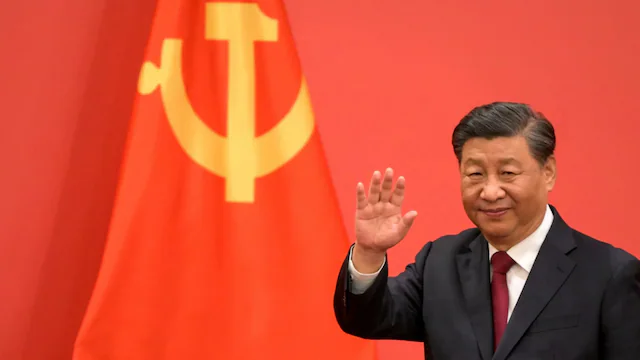
Xi Jinping (b.1953). A Chinese politician who has served as the paramount leader of China since 2012. He holds the positions of General Secretary of the Chinese Communist Party (CCP), Chairman of the Central Military Commission (CMC), and President of the People’s Republic of China (PRC).
Xi is considered one of the most powerful leaders in modern Chinese history, often compared to Mao Zedong and Deng Xiaoping for his consolidation of authority and influence.
Early Life and Education
Xi Jinping was born in Beijing to Xi Zhongxun, a veteran revolutionary and former vice premier.
During the Cultural Revolution, his father was purged, and Xi was sent to a rural county in Shaanxi Province as part of the Down to the Countryside Movement. There, he lived in a cave dwelling and worked as a laborer. Despite initial challenges, he joined the CCP in 1974 after several failed attempts.
Xi studied chemical engineering at Tsinghua University as a “worker-peasant-soldier” student. Over time, he pursued further education, including a doctoral degree in Marxist theory at Tsinghua.
Political Career
Xi rose through the ranks of Chinese politics by holding various leadership roles in provinces such as Fujian and Shanghai. His pragmatic governance style and ability to navigate party politics earned him recognition. In 2007, he joined the Politburo Standing Committee (PSC), China’s top decision-making body, and was designated as Hu Jintao‘s successor.
In 2012, Xi became General Secretary of the CCP and Chairman of the CMC, marking his rise as China’s paramount leader. He assumed the presidency in 2013.
Leadership and Policies
Xi Jinping’s tenure has been marked by significant domestic and international initiatives:
- Anti-Corruption Campaign: Xi launched a sweeping anti-corruption drive targeting officials at all levels (“tigers” and “flies”), which bolstered his control over the party while addressing public grievances about corruption.
- Economic Reforms: He has emphasized “common prosperity,” poverty alleviation, advanced manufacturing, and state-owned enterprises’ role in China’s economy.
- Foreign Policy: Xi’s administration has pursued assertive policies, including the Belt and Road Initiative (BRI), territorial claims in the South China Sea, and efforts to expand China’s global influence.
- National Security: Xi introduced a “holistic national security” framework encompassing economic, military, cultural, and cyber security. Under his leadership, mass surveillance systems have expanded significantly.
- Censorship and Human Rights: His tenure has seen increased censorship, suppression of dissent, and allegations of human rights abuses, particularly concerning Uyghurs in Xinjiang.
Xi Jinping Thought
Xi’s political philosophy, known as “Xi Jinping Thought on Socialism with Chinese Characteristics for a New Era,” was enshrined in both party and national constitutions. It emphasizes centralized party leadership, economic modernization, national rejuvenation (the “Chinese Dream“), and an active role for China on the global stage.
Consolidation of Power
Xi has centralized power to an unprecedented degree:
- In 2016, he was declared a “core leader” of the CCP.
- In 2018, term limits for the presidency were abolished, allowing him to remain in office indefinitely.
- In October 2022 and March 2023, he secured third terms as General Secretary and President respectively.
Xi Jinping Named as Top 20 Authoritarian or Fascist Figures (Jim Luce, 2025) (March 8, 2025)